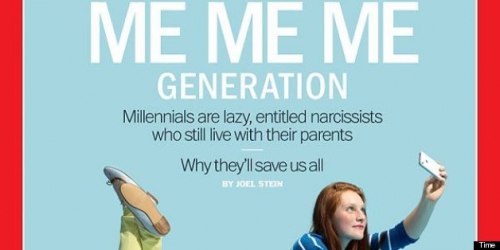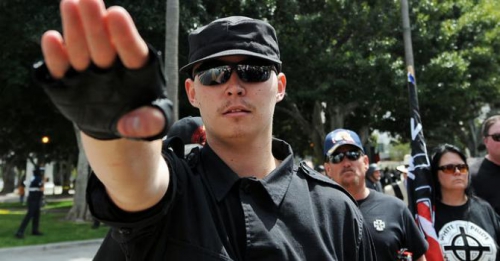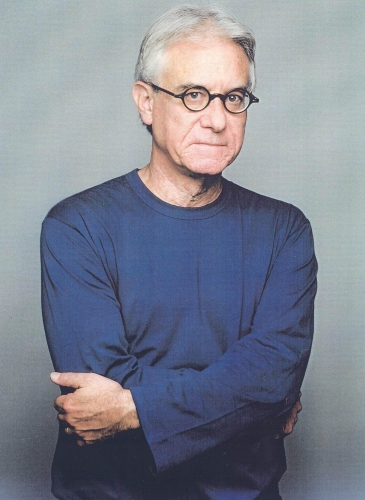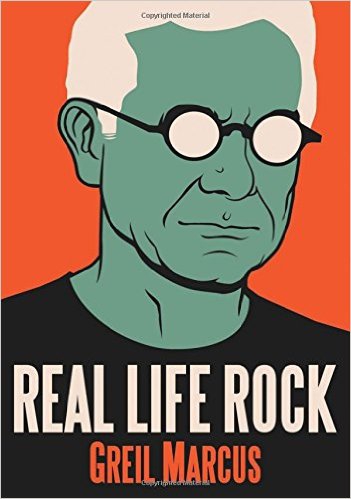
Degeneration and the Me Generation: The Decay of the Revolutionary Youth
Ex: https://institutenr.orgRevolution, political violence, indeed all violence is a young man’s game. Determined young rebels have forged nations, as we have seen throughout history. Yet these men were true revolutionaries, fanatics willing to sacrifice everything, they embodied Nechayev’s description, “The revolutionary is a doomed man. He has no personal interests, no business affairs, no emotions, no attachments, no property, and no name. Everything in him is wholly absorbed in the single thought and the single passion for revolution.”
Such devotion is rare in the modern West. Moreover, when it comes in foreign forms, such as the Islamic militant or the Latin American guerrilla it becomes the crass “radical chic” of sophomoric collegiate rebels who don Che Guevara t-shirts or keffiyehs manufactured in capitalist sweatshops. All youthful pseudo-revolutionary spirit today exists entirely within the parameters of capitalism, rootless, commodified, certainly nonthreatening to the established order. The paraphernalia of revolution is merely a tool of advertising through shock value. This indicates a larger issue, that the pose of resistance to the system has now been totally integrated into the system.
We must ask how did we get to this state of affairs. Jean Thiriart offers one possible explanation, juvenile revolutionary role-playing has taken the place of initiations into manhood in modern societies. Rebellion is merely a phase that one passes through before one’s full integration in bourgeois society. As he writes in “Political Praetorians or the Human Price of Militant Power”1:
Here I will deal with the juvenile cult.
The adolescent must pass a psychological mark in the course of which he is obliged to affirm himself to enter into the world of adults. In primitive societies (Africa and Amazonia for example) this passage is the object of a precise, formal, immutable, indisputable ritual. After having undergone the tests (generally tests of courage and/or light mutilations), the adolescent becomes a man. Once this is done, his character as an adult is no longer contested. Primitive societies are better organized than ours, on this defined scheme. Much later, in Greek antiquity for example, the rites of adolescence were equally well defined, well ritualized in the most official way.
Today, all of that is left to personal initiative. Pluto-democratic society doesn’t preoccupy itself with these important problems. So the adolescents themselves create the rites: student hazing, verbal pornography, youth alcoholism and – this is where out interest awakens – membership in a “tough” cult.
Post-war Neo-Nazi phenomena are astonishingly frequent among the youth. There is no question of a philosophical option here, but of captivation by a magic ritual. Every terrifying wonder is attached to the souvenirs of the SS and the NSDAP. Thus certain youth who undergo the obligatory crisis of affirmation towards their status of adulthood, frequently create juvenile cults.
The machine of American-Zionist propaganda presents these juvenile cults as political cults. This exploitation is very profitable for the Zionists, for the fanatical Jewish milieus of the extreme left. It’s the perpetuation of the “fascist danger” myth justifying their own actions. It’s the pretext to demand hundreds of millions more Marks from the German Federal Republic. All the little circles of so-called “nationalist” students equally reveal themselves as these juvenile cults. That’s why the population of these groups is extremely mutable. The youth remains there at a maximum of one or two year generally, the times of his crisis. Once he has passed the mark, he believes himself an adult, he leaves the juvenile cult and integrates very well into adult and bourgeois society …

It is thus necessary to guard against confusing the juvenile cult with a political cult. The first characterizes itself by its internal indiscipline – the adolescent must affirm himself and he naively holds that indiscipline is a mark of maturity – and by the absence of a new and original political ideology.
The juvenile cult is rowdy, without functional hierarchy and searching for magic elements in a reputedly prestigious past. It is made and unmade constantly, its members are ephemeral passengers.
Modern western pluto-democratic society provides no real rites for the passage of adulthood, thus the youth develop their own, which generally involve adopting personally risky or outrageous behavior, which while perhaps endangering the participant through violence, drug use, or promiscuity, poses absolutely zero threat to the ruling regime. Once the youth grow tired of this phase, they leave their expensive universities where they were allowed to play revolutionary in exchange for assuming a massive debt burden, and enter the corporate world to pay it off.
Moreover, we can note the individualistic aspect of these teenage rebellions. By flaunting the camouflage of the extreme-right or extreme-left they really emphasize their separation from their fellow countrymen, instead of seeking to forge bonds with wider society as a precursor to political change, they alienate themselves from the same masses they would pretend to lead. In reality it is a form of attention-seeking, common among Western youths whose parents have ignored them to pursue their careers. This attention-seeking often has a sexual component, it becomes “peacocking” to attract a partner, as we note in the fetishization of Nazism within Punk or Goth subcultures.
 Furthermore, in the decades following World War 2, we have seen student political movements whose precise goal was radical individualism, masquerading as communism or socialism. Thus you find statements like that of 60s radical John Sinclair who demanded, “Total assault on the culture by any means necessary, including rock and roll, dope, and fucking in the streets.” The roots of this style of thinking lie in the Situationist movement, which influenced the Punk subculture (Sex Pistols manager Malcolm McLaren was notably influenced by the movement). Situationism emerged from the anti-authoritarian left in France to advocate attacking capitalism through the construction of “situations,” to quote Debord, “Our central idea is the construction of situations, that is to say, the concrete construction of momentary ambiences of life and their transformation into a superior passional quality.”2 These situations took the form of radical individual liberation and experimentation, avant-garde artistic movements, and the celebration of free play and leisure. While Situationism situated itself on the communist left, it replicated the individualism of capitalism, as Kazys Varnelis notes3:
Furthermore, in the decades following World War 2, we have seen student political movements whose precise goal was radical individualism, masquerading as communism or socialism. Thus you find statements like that of 60s radical John Sinclair who demanded, “Total assault on the culture by any means necessary, including rock and roll, dope, and fucking in the streets.” The roots of this style of thinking lie in the Situationist movement, which influenced the Punk subculture (Sex Pistols manager Malcolm McLaren was notably influenced by the movement). Situationism emerged from the anti-authoritarian left in France to advocate attacking capitalism through the construction of “situations,” to quote Debord, “Our central idea is the construction of situations, that is to say, the concrete construction of momentary ambiences of life and their transformation into a superior passional quality.”2 These situations took the form of radical individual liberation and experimentation, avant-garde artistic movements, and the celebration of free play and leisure. While Situationism situated itself on the communist left, it replicated the individualism of capitalism, as Kazys Varnelis notes3:
Situationism may have started out as an anti-bourgeois movement, but since it was fundamentally bourgeois in its advocacy of individual experience, when it was through with its critique all that was left was melancholy. Ultimately even the idea of the Situationist International was foreign to the ideology. Organization, even its own, was unacceptable. The end of Situationism says everything: a lonely alcoholic shot himself through the heart. Raoul Vaneigem once wrote “the glut of conveniences and elements of survival reduces life to a single choice: suicide or revolution.” By the time the Situationist movement had played itself out, it was clear that revolution required too much effort.
As Debord put a gun to his chest in the Upper Loire, the Situationist industry, led by Greil Marcus, was cranking up in high gear. As Steven Shaviro writes in his excellent commentary on Marcus’s misguided take on Michael Jackson:
‘Situationism itself — not in spite of, but precisely on account of, its virulent critique of all forms of commodity culture — became one of the most commercially successful “memes” or “brands” of the late twentieth century.’
 Deliberately obscure, Situationism was cool, and thus the perfect ideology for the knowledge-work generation. What could be better to provoke conversation at the local Starbucks or the company cantina, especially once Marcus’s, which traced a dubious red thread between Debord and Malcolm McLaren, hit the presses? Rock and roll plus neoliberal politics masquerading as leftism: a perfect mix. For the generation that came of age with Situationism-via-Marcus and the dot.com era, work at offices like Razorfish or Chiat/Day was the highest form of play. Enough pop-tarts for middle of the night charettes and a bit of colorful design ensured that work and life had finally merged in the dot.com workplace. Or so it was in theory. The reality was Office Space.
Deliberately obscure, Situationism was cool, and thus the perfect ideology for the knowledge-work generation. What could be better to provoke conversation at the local Starbucks or the company cantina, especially once Marcus’s, which traced a dubious red thread between Debord and Malcolm McLaren, hit the presses? Rock and roll plus neoliberal politics masquerading as leftism: a perfect mix. For the generation that came of age with Situationism-via-Marcus and the dot.com era, work at offices like Razorfish or Chiat/Day was the highest form of play. Enough pop-tarts for middle of the night charettes and a bit of colorful design ensured that work and life had finally merged in the dot.com workplace. Or so it was in theory. The reality was Office Space.
Today, Situationism seems to be more popular than ever, serving as the latest justification for the neoliberal city. Instead of a broader idea of a collective, Situationism advocates for the right not to work (but just how will we survive? will amazon make free shipments after the revolution?).
Instead of tired calls for social justice, Situationism demands the right to drunken play, for the spilling of semen on the cobblestones. All this sounds less like Utopia and more like Amsterdam, Dublin, Prague, or any European city overrun by drunken American college students in the summer, taking in the urban fabric late at night with pub crawls.
If a drunken Debord might have approved, I’m afraid that this doesn’t seems like liberation to me, it seems like hell.
In the wider geopolitical perspective these Situationist influenced New Left groups actually increased the power of American capitalism in Europe. The Mai 1968 events in France broke the will of the Gaullist government, which had been asserting its independence from NATO and pursuing dirigiste economic policies that blunted the force of international capitalism. We should note in passing that New Left leader David Cohn-Bendit had CIA connections as well4. As Alain de Benoist noted Mai 68, far from instilling revolutionary discipline, furthered individualist atomization and the market mediated satisfaction of hedonist desires5:
The great error was to believe that by attacking traditional values they could fight better against the logic of capital. It was to ignore that these values, as well as what remained of organic social structures, constituted the last obstacle to the planetary expansion of this logic. The sociologist Jacques Julliard made a very correct observation regarding this when he wrote that the militants of Mai 68, when they denounced traditional values “did not notice that these values (honor, solidarity, heroism) were, quite nearly, the same as those of socialism, and by suppressing them, they opened the way to the triumph of bourgeois values: individualism, rational calculation, efficiency.”
 But there was also another Mai 68, of strictly hedonist and individualist inspiration. Far from exalting a revolutionary discipline, its partisans wanted above all “forbidding to forbid” and “unhindered enjoyment.” But, they quickly realized that doesn’t make a revolution nor will “satisfying these desires” put them in the service of the people. On the contrary, they rapidly understood that those would be most surely satisfied by a permissive liberal society. Thus they all naturally rallied to liberal capitalism, which was not, for most of them, without material and financial advantages.
But there was also another Mai 68, of strictly hedonist and individualist inspiration. Far from exalting a revolutionary discipline, its partisans wanted above all “forbidding to forbid” and “unhindered enjoyment.” But, they quickly realized that doesn’t make a revolution nor will “satisfying these desires” put them in the service of the people. On the contrary, they rapidly understood that those would be most surely satisfied by a permissive liberal society. Thus they all naturally rallied to liberal capitalism, which was not, for most of them, without material and financial advantages.
For the most part, the New Left continued the work of capitalism in reinforcing the individualist values of the West and removed the last barriers standing the way of the domination of consumerist desires in all spheres of life. In the instances where the Western New Left became enamored with Third World revolutionaries, it took on a character of Orientalist escape into exotic fantasies that shared absolutely zero with the perspectives of unrepentant Stalinists like Che Guevara or Mao Zedong. The solidarity of American hippies with the peasant revolutionaries of the Viet Cong seems patently absurd. Vietnam was won in the name of radical collectivism, ascetic military virtue, and national liberation, not sexual libertinism and shocking one’s parents. Of course, we can note legitimate exceptions in the New Left milieu, such as the West German Red Army Faction, which truly embodied the discipline exalted by guerrilla warriors to the death.
In conclusion, we can say that the revolutionary spirit of the youth has been hijacked by the values of the West it should be waging revolutionary struggle against, namely individualism, selfishness, hedonism, the refusal of truly revolutionary discipline. The revolutionary potential of the youth has become another market. The suffering and sacrifice of fighters worldwide become accessories for alienated Western youth to flaunt their “individualism,” which in reality is nothing more than conformism to the vast array of consumer options offered by capitalism. Another sign of the degeneration of the “Me Generation.” The real revolt to come must necessarily sweep away this faux rebellion that saturates the youth of the West, along with all the other false values of the West.
2) http://www.bopsecrets.org/SI/report.htm
3) http://varnelis.net/blog/against_situationism
4) http://www.comite-valmy.org/spip.php?article497
5) http://www.egaliteetreconciliation.fr/Mai-68-par-Alain-de-Benoist-442.html